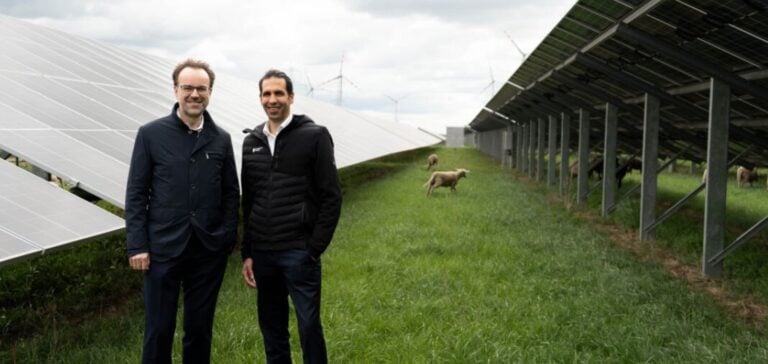Borealis, one of the world’s leading suppliers of advanced, sustainable polyolefin solutions, and Burgenland Energie, Austria’s leading wind and solar power producer, have signed their first PPA. This ten-year agreement provides for the supply of renewable electricity from a hybrid energy park located in Nickelsdorf, Austria.
Project details
From January 2026, Burgenland Energie will begin supplying around 70 GWh a year of wind and solar power to the Borealis facilities in Schwechat. This amount of energy is equivalent to supplying 15,855 homes annually, making a significant contribution to Borealis’ sustainable energy practices. This agreement enables Borealis to secure 55% of its electricity from renewable sources for its operations in Austria.
Environmental benefits
This APP is expected to significantly reduce Borealis’ annual Scope 2 emissions by around 7,300 metric tons. Over the ten-year period of the agreement, this represents a total reduction of 73,000 metric tons of Scope 2 emissions, demonstrating the company’s commitment to environmental sustainability.
Burgenland Energie’s vision
Burgenland Energie is a leader in renewable energy production in Austria, developing hybrid wind and solar farms across the country. This initiative supports Austria’s goal of achieving 100% renewable energy in its electricity system, and transforming Burgenland into one of the world’s first climate-neutral and energy-independent regions.
A commitment to the future
Thomas Gangl, CEO of Borealis, expressed his pride in the collaboration, underlining the importance of the agreement in achieving the company’s goal of sourcing all its electricity from renewable sources by 2030. Stephan Sharma, CEO of Burgenland Energie, added that this partnership exemplifies how collective efforts can lead to significant change, using Burgenland’s wind and solar energy to power Borealis’ operations.
This agreement between Borealis and Burgenland Energie is a concrete example of how companies can work together to achieve ambitious sustainability goals. By combining their expertise and resources, these two companies are leading the way towards a greener, more sustainable future.






















